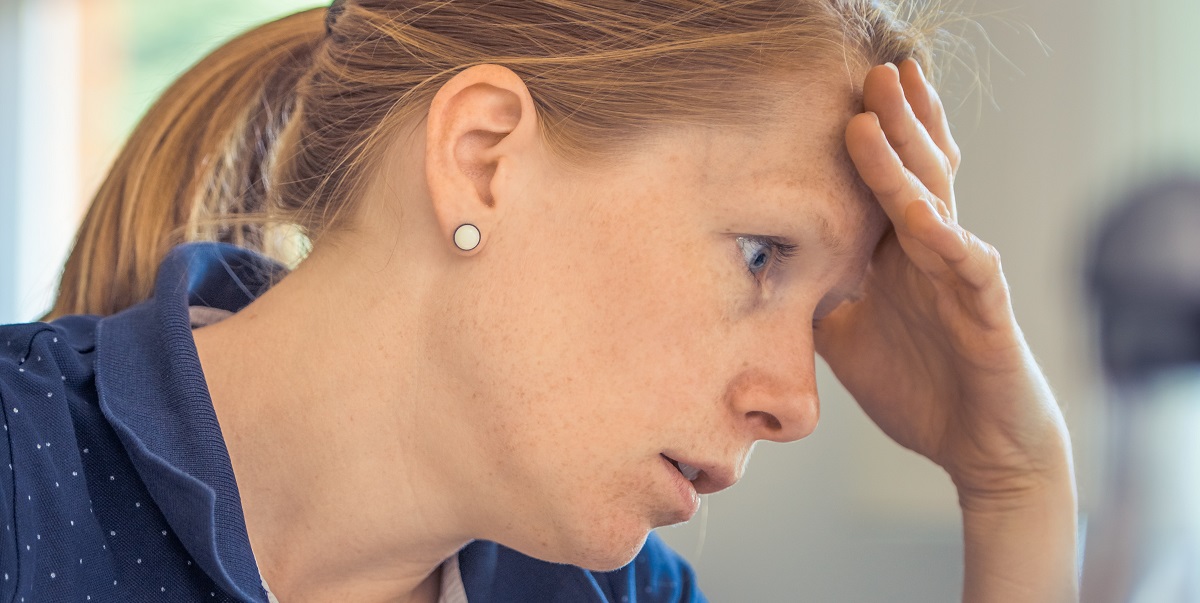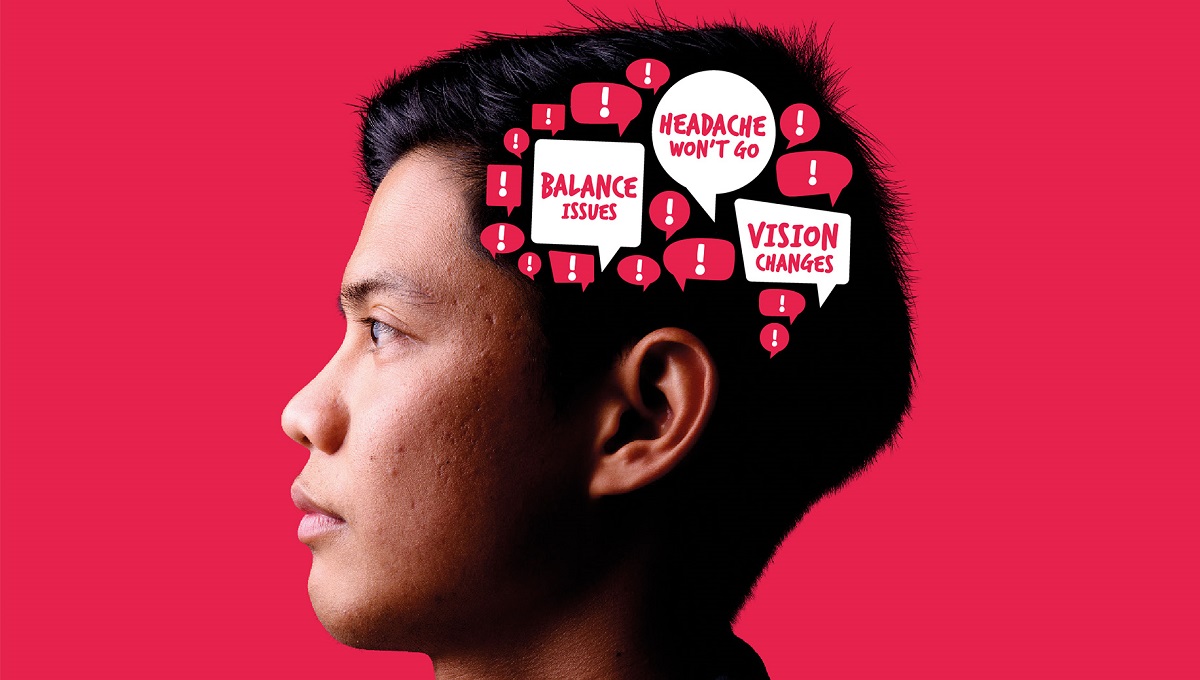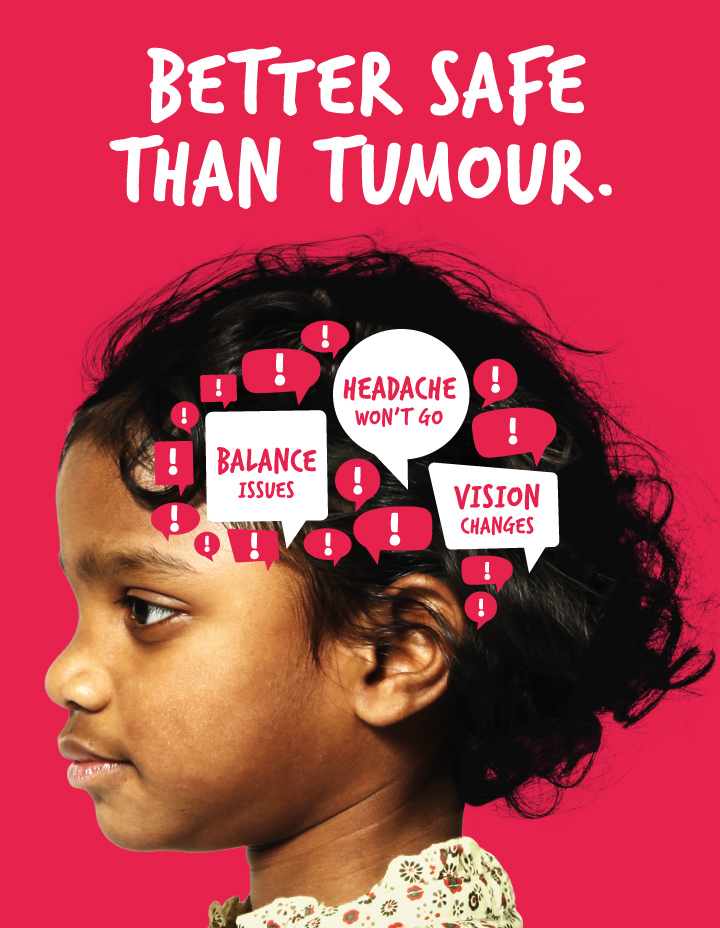Headache
Around 50% of people who are diagnosed with a brain tumour said headaches were one of the complaints they went to the doctor with. But, a headache isn’t a definite sign of a brain tumour.

Short summary
Headaches can be caused by a number of things, like dehydration, illness, hangover, sinus infection and more. Doctors generally do not worry if there is a clear reason for your headache, and if you don’t have any other brain tumour symptoms.
But, headaches are a symptom of brain tumours. So, it’s important to understand brain tumour headaches so that you know the signs to look out for. Here we’ll discuss how they feel and what sets them apart from other headaches.
On this page:
- Why do I have a headache?
- Is my headache a brain tumour?
- What kind of headache do brain tumours cause?
- What does a brain tumour headache feel like?
- How do I cope with a brain tumour headache?
- Other signs and symptoms of a brain tumour
- I think I have a brain tumour, what should I do?
Other symptoms
Use our Better Safe Than Tumour symptom checker to check for other brain tumour symptoms.
Talking to your doctor
Learn more about how to approach your GP.
Get your free Information Pack
Our Brain Tumour Information Pack can help you better understand your diagnosis and feel confident talking to your medical team.
Why do I have a headache?
Lots of different things can start headaches. They can happen because of a cold or flu, drinking too much alcohol, stress, hunger or not drinking enough liquids. They can even start because of bad posture or eyesight issues.
So, if you have a headache, it could well be for one of these reasons.
However, it might be important to consider the possibility that it’s a brain tumour, particularly if it’s paired with other signs and symptoms. We say, Better Safe Than Tumour.
Is my headache a brain tumour?
Here’s the reassuring news. Most headaches aren’t caused by brain tumours. As we mentioned, headaches are very common in healthy people, and can be due to many everyday causes.
But, headaches are one of the most common symptoms of a brain tumour. In fact, up to 60% of people living with a brain tumour will develop headaches at some point.
The headaches are not caused directly by the tumour itself. This is because the brain has no pain receptors. They’re actually caused by a build-up of pressure on pain-sensitive blood vessels and nerves within the brain.
The build-up of pressure can be due to the tumour pressing on these vessels or nerves. It could also be the tumour blocking the flow of cerebrospinal fluid (CSF) within the brain.
But, remember: Headaches are rarely the only symptom of a brain tumour.
Doctors do NOT generally worry if your headache is:
- occasional
- mild
- doesn’t last long
- has an identifiable cause, such as a hangover, lack of sleep, flu-like illness, sinus infection or if you have been ‘fasting’ (not eating) or overusing medication.
Still, it’s understandable to be worried if you have symptoms that aren’t going away. If this is the case, you should see your doctor. Click the link below to find out more.

What kind of headache do brain tumours cause?
Headaches caused by brain tumours are usually:
- worse in the morning (you may wake with one)
- aggravated by straining, coughing, shouting or bending over – their intensity and pain may reduce when you are standing upright and the build-up of CSF begins to drain
- not managed by pain killers
What does a brain tumour headache feel like?
Headaches caused by brain tumours:
- can be throbbing or a dull ache, depending on where they are in the brain
- occur intermittently starting gradually, but fading over a few hours
- tend to get worse over time
- can resemble common migraine or tension-type headaches.
Other types of headache
Other types of headaches include:
- tension headaches
- migraine headaches
- rebound headaches
- cluster headaches
- sinus headaches
- headaches due to flu/fever/PMS
- temporal arteritis
For more information about these and other headache types, see the National Headache Foundation’s Complete Headache Chart.

How do I cope with a brain tumour headache?
Below are some suggestions to help manage and treat headache pain that people with brain tumours can experience:
- take the medication prescribed by your doctor (your doctor may have prescribed steroids – these can help by reducing swelling in the brain, so lowering the pressure and relieving the headache)
- tell your doctor straight away if the medication stops working or becomes less effective
- keep a headache diary
Symptoms can change over time. Be sure to tell any your doctor or nurse as soon as possible about any new symptoms or changes in existing symptoms.
-
In your headache diary, as well as when you have headaches (days & time), it can be useful to record the following for each headache:
- what the pain feels like e.g. sharp, stabbing, dull, pounding, achy, tingling
- where the pain is located
- whether it moves around or stays in one place
- how you would score the pain on a scale of 1 to 10, with 1 being no pain and 10 being the worst pain imaginable
- how long the headache lasted
- whether it comes and goes, or if its there all the time
- if it was accompanied by nausea, vomiting, changes in vision, or any other symptoms
- if it seemed to happen in relation to something else (e.g. eating, standing up suddenly, exercising)
- if pain medicine helped, if so, how much?
- if there was anything else that made the pain better or worse
-
There are many different types of headache. Migraines are one type.
A migraine is usually a moderate to severe throbbing headache often on one side of the head, and accompanied by other symptoms, such as visual disturbances (called an aura), sensitivity to light, sound or smells, and nausea or vomiting. They tend to last from 4 – 72 hours.
People who get migraines, or other recurrent headaches, often worry that they may have a brain tumour.
It is important to remember that migraines are common, affecting around 1 in 5 women and 1 in 15 men, while brain tumours are rare. So it is unlikely that your headaches are due to a brain tumour.
However, you should see your doctor if your headaches include the symptoms of brain tumour headaches as described on this page. Or if you:
- get regular headaches
- have any change in the pattern of your headaches
- think your headaches are getting worse
- develop unusual symptoms.
If you experience any of these, it does not necessarily mean you have a brain tumour, but it is important to get an accurate diagnosis to rule out possible serious causes and also to get advice on managing your symptoms.
Keep a headache diary to take to your doctors to help with the diagnosis.
Other signs and symptoms of a brain tumour
Other features of headaches have been identified as “red flags,” which may suggest a brain tumour. These include:
- a change in previous headache pattern
- if your headaches are associated with:
- prolonged / repeated vomiting
- any new muscle weakness / sensory symptoms (e.g. numbness or speech difficulties), or visual symptoms, especially on one side of the body
- a change in memory, personality, or thinking
- seizures (fits) – this does not have to be a full convulsive seizure, but could be a twitching of the hand, arm or leg, or an ‘absence’
It is important to remember that all these symptoms can frequently occur in harmless headaches.

I think I have a brain tumour, what should I do?
If you get a lot of headaches or they’re very painful, it’s natural to worry that something worse is causing them, like a brain tumour.
If you’re worried, here are a couple of options to explore:
Talk to your GP
You should speak to your doctor, who can do a neurological examination. This involves testing your vision, hearing, balance, reflexes, arm and leg strength, and coordination.
If this examination doesn’t show anything outside the normal range and you have no other symptoms, you are unlikely to have a brain tumour.
GP appointments are usually quite short. Find out how to best prepare for your appointment with our guide to talking to your doctor.
Get an eye test
If your symptoms are limited to changes in vision and/or headaches, get your eyes tested by an optician before seeing your GP.
Should I go to A&E?
Call 999 or go to A&E at your hospital if:
- The headache is accompanied by a fever or stiff neck.
- The headache is the highest degree of pain on the pain scale.
This does not mean it is a brain tumour, but it could be another serious complaint that needs immediate treatment.
Call your doctor, NHS 111 or Out-of-Hours Service if you are not sure what to do.
For signs and symptoms to be aware of in children of different ages, including persistent or recurring headaches, visit our Better Safe Than Tumour website.
In this section

Know the Signs and Symptoms
Although brain tumours are rare, if you or a loved one are experiencing two or more of the signs and symptoms it’s important that you speak to your doctor to rule out a brain tumour.

Share your experiences and help create change
By taking part in our Improving Brain Tumour Care surveys and sharing your experiences, you can help us improve treatment and care for everyone affected by a brain tumour.